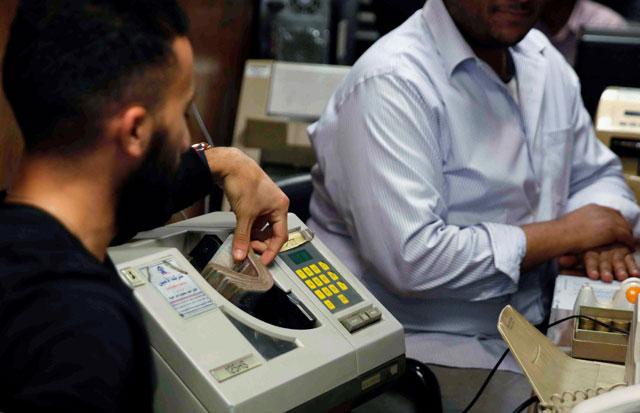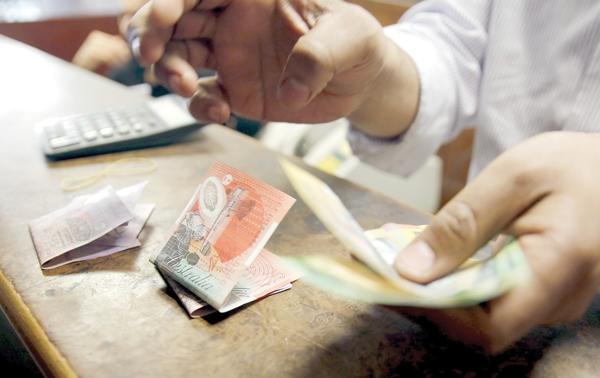You are here
Egypt’s illicit currency traders defy crackdown, spread business abroad
By Reuters - Jun 16,2016 - Last updated at Jun 16,2016

An employee counts Egyptian 50 pound notes at an exchange office in downtown Cairo, Egypt, April 19 (Reuters photo)
CAIRO/RIYADH — Egypt’s efforts to stamp out illicit currency trading is pushing black market dealers to carry out transactions abroad, beyond the reach of the law, robbing the economy of its last vital source of foreign currency.
Dealers say they are scooping up dollars held by expatriate workers and exporters before they ever enter Egypt, exacerbating the dollar shortage at the heart of the currency crisis that has already undermined investment and hit trade and manufacturing.
Egyptians working abroad send back about $19 billion a year in remittances, an important source of hard currency for a country that has seen tourism, foreign investment and exports dwindle in the political turmoil that followed the 2011 revolt.
The central bank has sought to crack down on the black market, revoking the licenses of exchange bureaus found dealing far beyond the official rate. This month, the government approved plans to impose jail terms for black market trading.
But the gap between an official dollar rate of 8.8 Egyptian pounds and a black market rate close to 11 pounds is encouraging expatriates to circumvent banks altogether.
“It’s a vicious cycle because the only way for the black market to end is for banks to start providing dollars and the banks don’t have the dollar resources, because they are being sucked up by the black market abroad,” said one banker who declined to be named due to the sensitivity of the matter.
Abu Marwan, an Egyptian engineer who works in Saudi Arabia, used to transfer money each month to his wife’s bank back home. For the past year, he has gone instead to black market dealers who offer a better rate if he hands over his cash abroad.
“Me and my colleagues here stopped transferring money through the banks to Egypt because when you do that you lose,” said Abu Marwan, who makes the equivalent of $2,600 a month.
“We all open a phone line and agree on the price together, then I give the man in Riyadh the money and at the same time his partner gives my wife in Egypt the money in Egyptian pounds at a higher rate.”
Central bank officials were not immediately available to respond to queries about black market dealers carrying out transactions abroad.
Egypt has struggled to restore growth since the 2011 uprising that toppled Hosni Mubarak and scared away tourists and foreign investors - key earners of foreign currency.
Foreign reserves have halved from over $36 billion before the revolt to about $17.5 billion in May.
The central bank has been forced to ration dollars and prioritise essential goods like food, introducing restrictions on the transfer and deposit of foreign currency.
Related Articles
Egypt’s Central Bank has taken extraordinary steps to prop up the currency and curb a black market in foreign exchange — but in back alleys and money changing shops around the country, illicit dealing continues to thrive.
BEIRUT — Lebanon's central bank on Sunday announced a "conditional" plan that would allow depositors, hit by strangling financial restrictio
CAIRO — Egypt's war on black market currency traders is not going to plan.
















